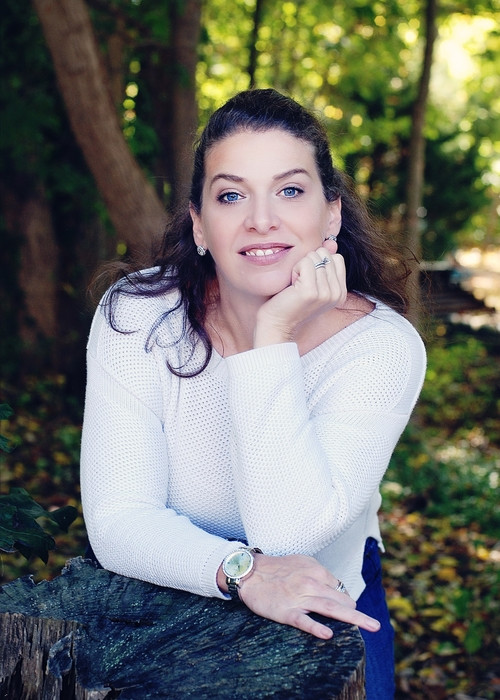
How and/or why did you become a therapist?
I became a therapist for the same reason everyone becomes a therapist, I wanted to change the world. And I was terrible in math. There is almost no math in any of the undergraduate or graduate programs! Kidding aside, I have always been interested in people and their behavior. I earned an Associate Degree in Criminal Justice thinking that I would love to have a career in criminal profiling. This was before the days of the ID network and internet, the days of books. I would read everything I could about crime. I remember one Christmas when I was 18 years old, I received all true crime books. Even though I thought it was fascinating, I also began to feel it was too dark for me, just way too depressing. I would ride the train to Boston everyday just looking at all the people wondering if anyone had every done anything bad. That’s when I decided I should work with people that are alive. So, addiction here I come. I got a job on a street outreach team in Cambridge MA and we walk the streets of Cambridge connecting with all the homeless people along the way. It was great. The pay was terrible, and the working conditions were even worse but meeting people, hearing their stories and building relationships was exactly what I wanted. After about a year of that job I went into my boss’s office and told her I wanted to quit. She was genuinely surprised and inquired why. “I have been here a year, and I have not been able to convince one person to get sober.” She laughed, “You are not here to get them sober, you’re here to check to see if they are still alive.” Good lesson, know your job responsibilities. At that point I knew I wanted to work in the field, working with people to find solutions to the problems.
What are the most rewarding aspects of being a therapist?
Watching people heal.
What’s unique or special in your background or approach to interpersonal relationships?
I am a very direct person, so it makes sense my therapeutic practice is pretty direct. I am an addiction and trauma therapist. I have my own version of addiction work that I created using CBT, Narrative Therapy and Meditation skill building. I also provide a lot of psychoeducation of foundation skills, which is essential self-care. For my trauma work I use a lot of reprocessing and Brainspotting. My program is pretty intensive, and it is hard work. I am very focused on healing the emotions and treating the behavior.
What are your favorite or most interesting interpersonal relationship tips/advice?
”You never know”. People are interesting! I have treated some people where I think, “Oh, this is going to be a rough road” and they do amazingly well after four sessions and they are gone. Or the people that I think will breeze right through treatment and then they just don’t mesh well with the therapy. And of course, there are clients that give you a run for your money, they make you want to pull your hair out because their addiction is strong and then two years later they are clean, sober and engaged in treatment working hard on their traumas. It is amazing.
What are some things about therapy that you want to increase public awareness about?
I wish people knew more about trauma. Most people think it is events that create a bad memory, but it is actually events that change how your brain and body functions. And these changes do not readjust after the trauma is over, creating the body to become just a little more hypervalent. This hypervigilance distracts from your ability to make decisions in the present life, therefore people are more susceptible to making a bad choice. This cycle keeps repeating, increasing strength. We have come such a long way in understanding trauma and what it does to the body, especially how it links to many physical and emotional problems. It is fascinating.
What are some of the biggest mistakes a therapist can make?
I think the biggest mistake a therapist can make is not taking good care of yourself. This work can be consuming. When we are seeing clients everyday it is easy to neglect our basic needs. It is essential to take breaks to eat, use the restroom, go outside, take days off, schedule paperwork days, participate in peer supervision and go to trainings. Your clients will thank you for it.
Bio
I started my career in a Street Outreach team for the homeless population in Cambridge and Somerville, MA. This experience brought me face to face with what addiction, mental health, poverty and social structure can do to a person. This job provided me with the education to begin my journey to trying to understand substance abuse. It also introduced me to some of the most wonderful, creative and inspiring people. I was hooked. For the next several years I worked in many areas of social services all focusing around the needs of substance abusing clients. In 2002 I made the decision to return to school to complete a Master’s Degree in Social Work from Simmons College. Upon graduation in 2005 I began my career as a social worker specializing in substance abuse. I have lead several group practices to support people in Suboxone Treatment and Women with Dual Diagnosis Issues. I have also maintained a private practice since 2009 to treat people struggling with addiction issues. I am the owner of Forgewell Solutions, a collaborative therapy office housing eight other therapist to utilizing a multidisciplinary approach to treat the needs of the community. We offer individual, couple, family and group therapy for adults and children. You can learn more about Karen Peabody at www.youronesolution.org.
Karen Peabody, LICSW
36 North Bedford Street Suite C22
East Bridgewater MA 02333
(774)222-3196
(774)221-9196